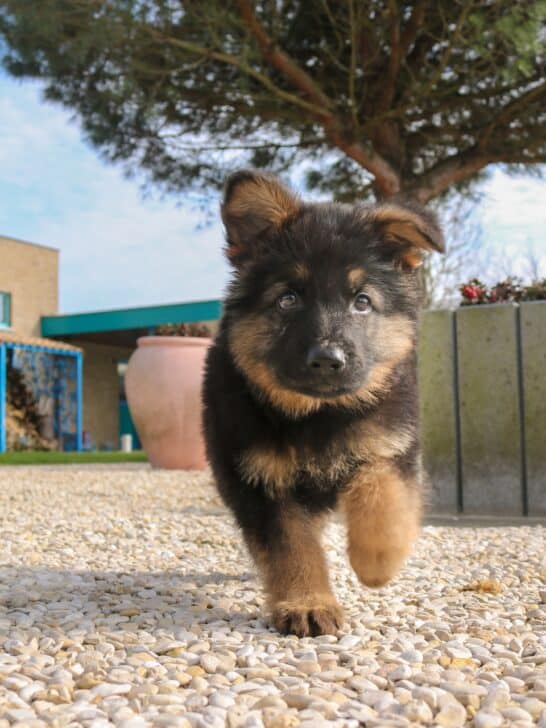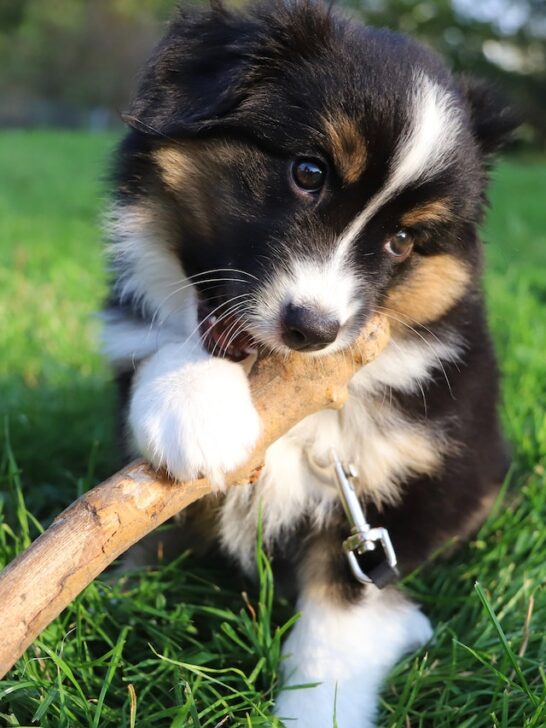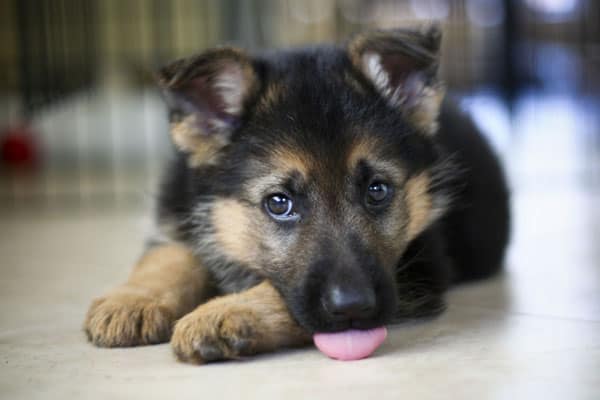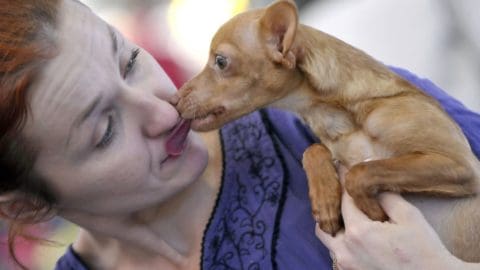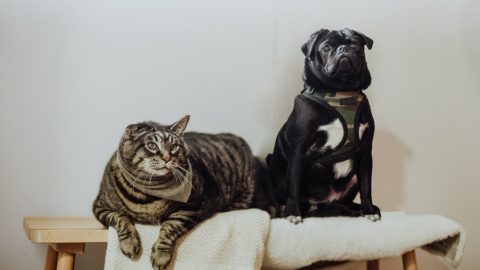Why Do German Shepherds Growl? How Do I Stop it?
German Shepherds are one of the most devoted dog breeds, but they may start growling when they see aggressive behavior or notice other dogs who may harm a family member.
Aggressive growling is not the only type of growl, and there are ways to stop growling.
Consider your dog’s body language before anything else.
German Shepherds may growl if they:
- Are in pain
- Feel threatened
- Are playing tug
- Are guarding someone or something
Read on to find out more about German Shepherd growling.
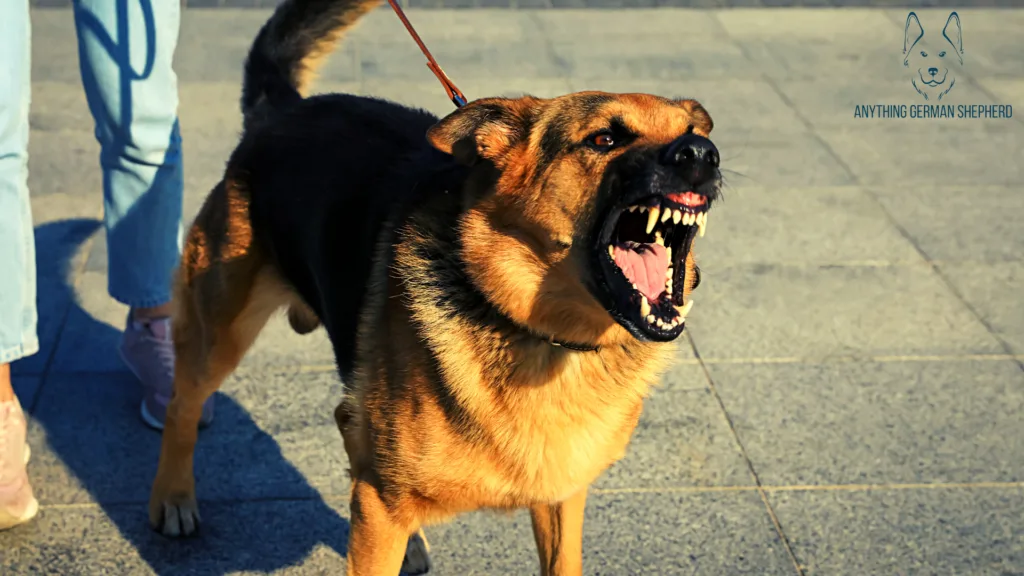
Top 5 Reasons For German Shepherd Growling
Not every dog growl is an aggressive growl.
These dogs may be engaging in good behavior instead, like playing or resource-guarding.
Consider if your dog has a toy or food or may be overwhelmed with fear.
These signs can help you understand what type of growls your pup uses most often.
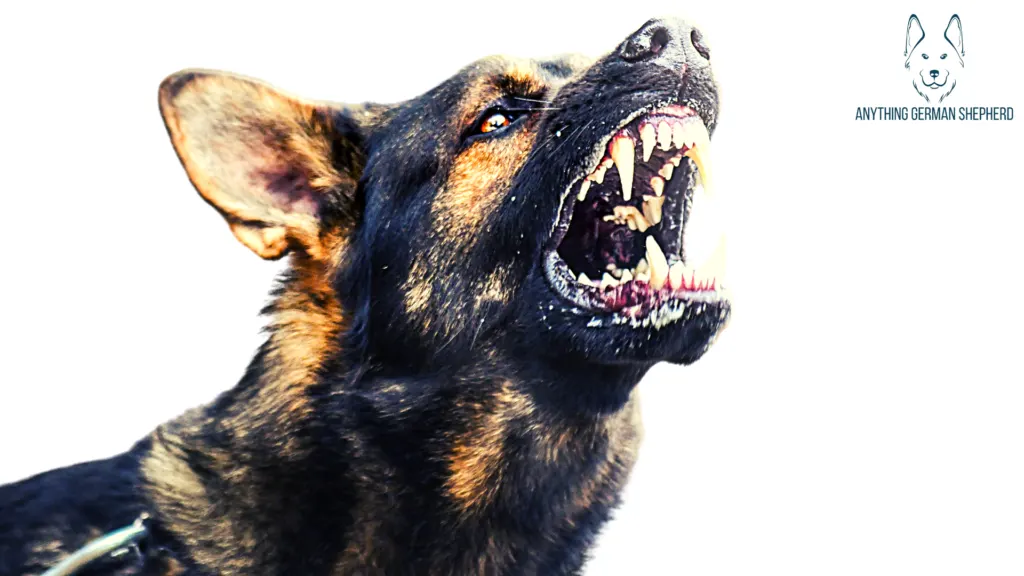
Your German Shepherd Is Injured Or In Pain
One of the most significant reasons dogs growl is if they are injured or in pain.
These dogs may not use snarling and aggressive growls when feeling pain.
Instead, your dog may express their discomfort through verbal growling, but it may not be directed at your or a family member.
Your German Shepherd Is Scared
Fear is another major contributor to a German Shepherd growling.
These dogs may growl when they are scared, and many things can scare your dog.
For example, your dog might get scared of thunderstorms or loud noises, especially if they are puppies.
These noises can easily make your dog think something is wrong.
Your German Shepherd Is Guarding Someone
Overprotective German Shepherds might growl if they feel they need to guard someone they love.
These dogs might choose growling as the best way to express love.
German Shepherds may growl if they think a loved one is in danger.
Your German Shepherd Is Guarding Something
Resource guarding is a prevalent instinct in dogs.
Your dog might think they need to protect something, like their toys, foods, or favorite items from visiting dogs or children.
If your dog feels like it may lose its items, it may guard them with growls and other noises to keep others away.
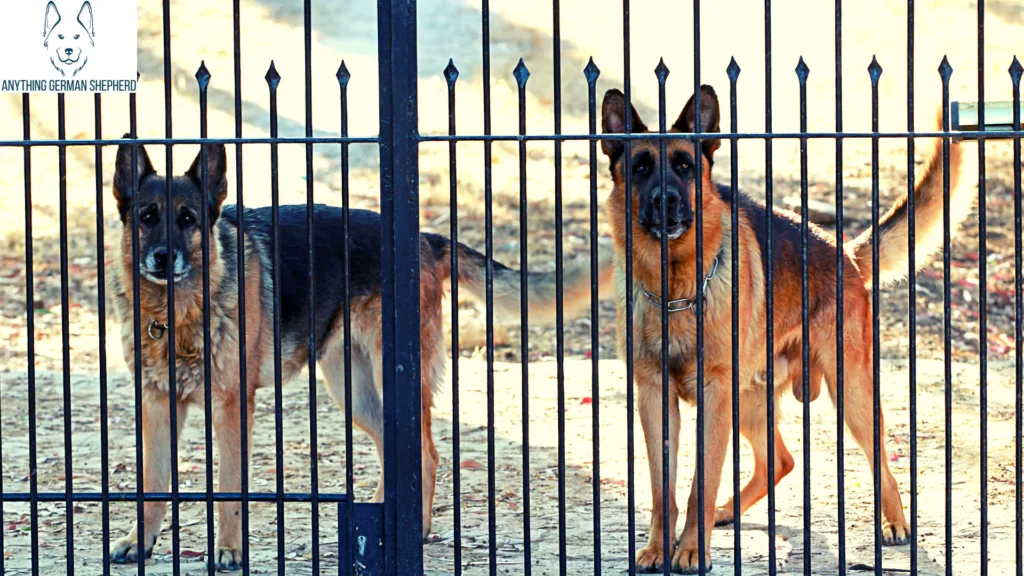
Your German Shepherd Is Growling While Playing or Excited
German Shepherds are famous for their growls while playing.
These dogs might express their excitement to play by using deep growls or howls, especially when playing tug-of-war.
More often than not, German Shepherds growl most when play fighting over a toy or object.
Carefully monitor their behavior to ensure there is no serious aggression.
3 Main Types of German Shepherd Growling
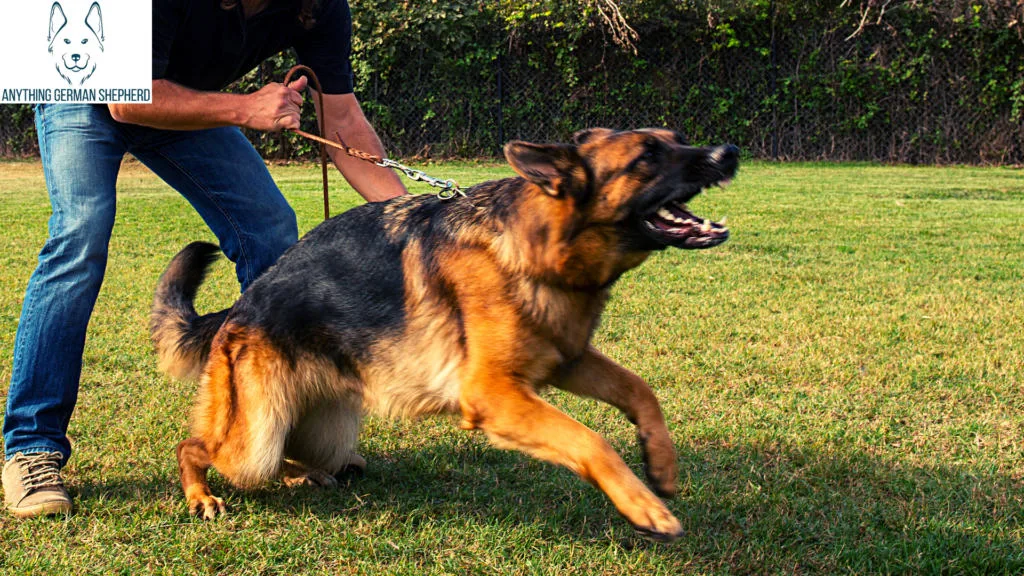
There are different reasons a dog may growl, and not every growl will be thunderous or promise a threat.
When your German Shepherd is growling, it may have some worry or pain. Or, your dog may want to show some affection.
Fearful Growl: “Leave Me Alone!”
One of the main types of growling is more of a warning from a scared animal.
When distressed, a growl from a German Shepherd may be a request to be left alone.
These will likely warn adults or wild animals that the dog has no problem getting aggressive but doesn’t want a fight.
Affectionate Growl: “That Feels Great, Give Me More!”
Your German Shepherd may growl when you have found the perfect spot to rub or scratch them.
These dogs love to be patted and show their enthusiasm for affection with growls.
A German Shepherd might also make mewling or other deep noises to show their adoration for the affection they are getting.
They may also use growling to get rubs in the first place.
Painful Growl: “Ouch! It Hurts; I Might Need Help.”
A German Shepherd may use a wide range of noises to convey that they are in pain.
These noises may happen for small things, like vet shots or a sprained limb.
Pay attention to other body language signs that your dog may be injured. Your dog will likely whimper and whine alongside any growls.
Why Do German Shepherds Growl At Their Owners?
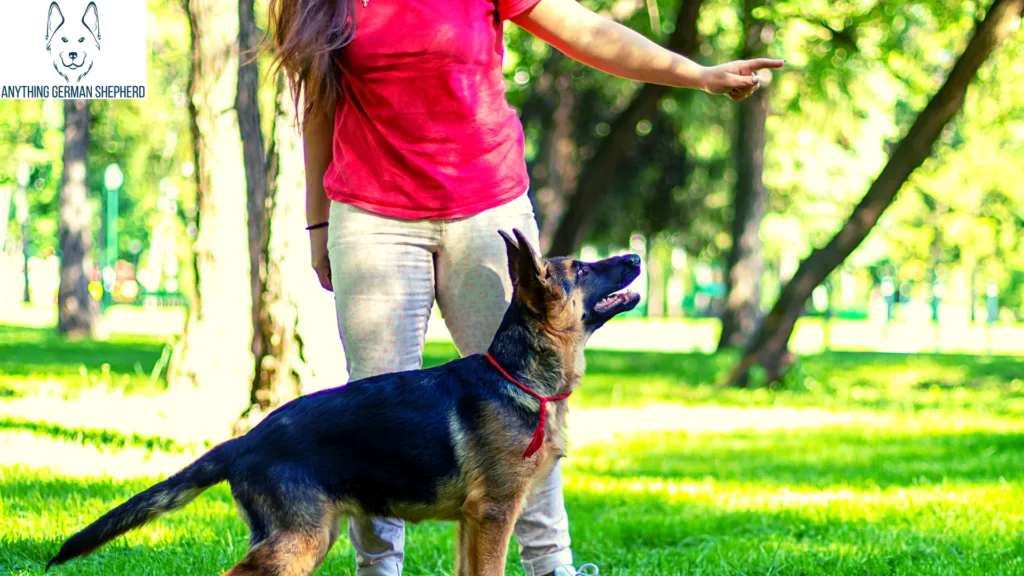
There are other, less significant reasons a dog might growl.
These may not be as obvious as our top five reasons, but they will still offer insight into how your dog is feeling.
German Shepherds might growl out of:
- Uncertainty
- Protection
- Pain
- Anxiety
For example, some may have separation anxiety.
They’re Protecting Their Resources
One of the most common reasons German Shepherds will growl is if they are attempting to guard their resources, toys, or food items.
Some German Shepherds may get aggressive when protecting.
These dogs will likely not stray far from their stash and may get aggressive with anyone getting close to their prized possessions.
They’re Not Sure What’s About To Happen
Uncertainty is difficult for German Shepherds to contend with, especially if they were raised in troublesome homes or backgrounds.
These dogs may get nervous when they don’t know what to expect.
Your German Shepherd may growl to show their worry and uncertainty.
Some might whimper or whine, coming to you for comfort and affection to deal with the feeling.
They’re in Pain
German Shepherds who are in pain might growl, whine, and make a lot of noise.
This pain can include long-term issues like chronic illness or digestive issues.
Some of these dogs might need medication and may use a growl to signify that they are having a flare-up of pain and need a dose of a vet-prescribed painkiller.
If you suspect your dog is in pain, always take them to the vet.
They’re Anxious To See You
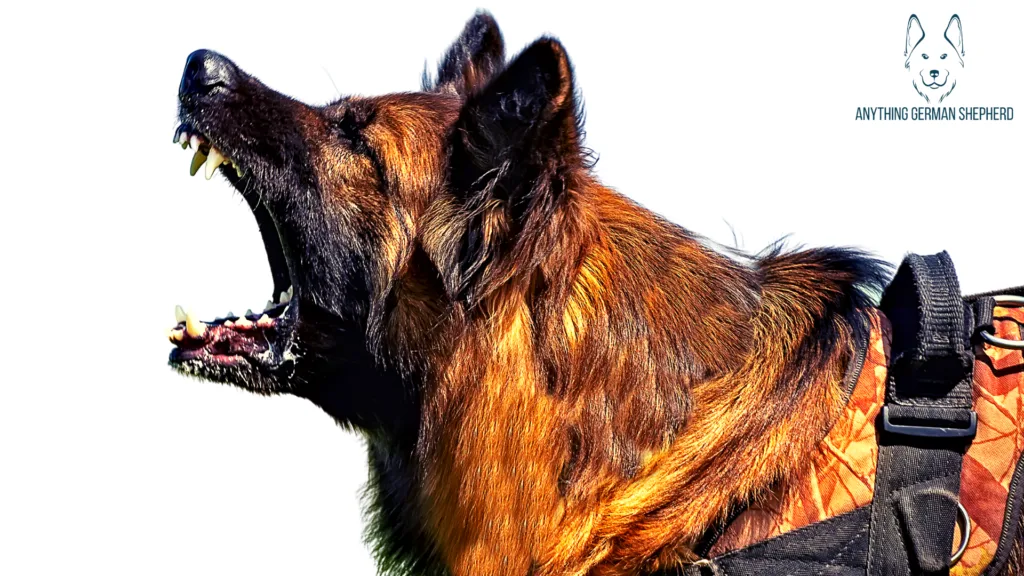
Your German Shepherd may feel anxious to see you and want to spend time with you, making them growl for your attention.
You may notice them growl while you’re in the other room.
German Shepherds who are anxious may use a wide range of noises to convey their need for companionship and affection.
Negative Memories
German Shepherds may have negative memories, especially if they’ve come from negligent homes or challenging backgrounds.
If your dog has suffered abuse or poor treatment, it may be plagued with negative memories that make them feel scared, helpless, or other challenging emotions.
Some dogs may even have nightmares about these memories that cause them to growl or bark in their sleep.
They’re Happy
Your German Shepherd might growl if they are feeling happy or ecstatic. These dogs are famously affectionate and loving.
German Shepherds will likely express their happiness in various ways, including barking, growling, and whining.
These growls will likely turn into barks and accompany a wagging tail.
Your German Shepherd may also lick and jump on you to show they are happy.
Be mindful of these signs to ensure they are not stressed.
They’re Playing
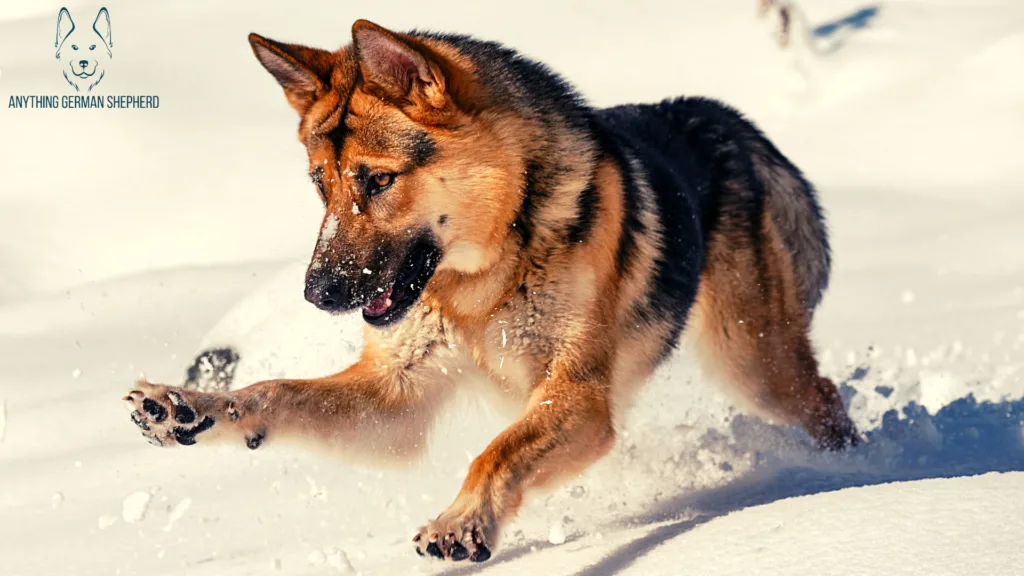
German Shepherds love to play and will gladly growl while they play with any other dogs or children in the home.
Growling can be a good indication your dog is having fun.
Be mindful of the other signs your dog is exhibiting.
If your dog is wagging their tail and growling while tugging on a toy, they are likely having a good time.
German Shepherds will also listen to verbal commands more when playing than they will while being aggressive.
How To Stop a German Shepherd From Growling at Their Owners
Helping your German Shepherd with their growling behavior may mean doing behavior training with them or taking them to a professional behaviorist.
There are also plenty of ways to make your pup more at ease.
Don’t Shout at Them or Scold Them
Shouting at your German Shepherd is one of the worst things you can do when trying to correct their behavior.
Instead of understanding you, they will think you are angry with them.
These dogs are protectors and loyal, but they are still sensitive and may need plenty of time and careful attention to redirect their negative behaviors.
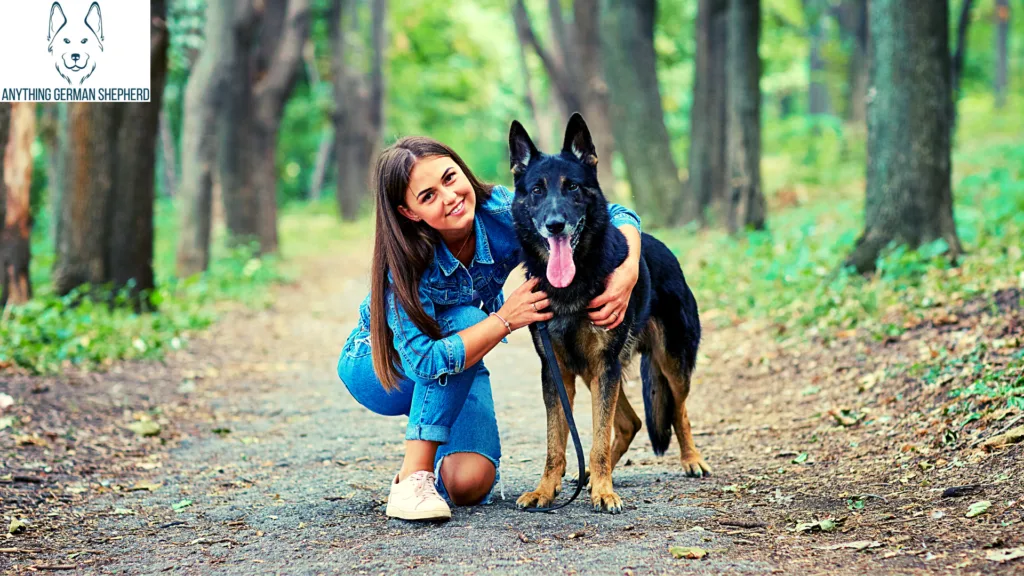
Don’t Reward Them Either
Don’t offer your dog treats to keep them quiet.
These treats will likely make your dog think they will get rewarded for growling or barking when they shouldn’t.
Instead, wait for them to stop growling and reward them only when they have stopped for a long period or self-corrected, meaning they aren’t growling even though they want to.
Positive Reinforcement
Positive reinforcement is when you offer your dog a positive reward for doing exactly what you want or expect of them.
Giving your dog a treat for not growling when someone comes in is an ideal positive reinforcer.
Offer your dog plenty of praise and love to help make them feel better.
Be Patient
Have patience with your German Shepherd.
They will likely need plenty of time to battle their instincts to protect and growl when they are meeting someone who could be a threat.
Training may take weeks or months but will be worth it in the end.
A Well-Trained German Shepherd Is Less Likely To Growl
Well-trained German Shepherds won’t growl nearly as much as those who don’t receive proper training.
Training will help your German Shepherd feel more secure and confident.
These dogs need proper training to feel like they can perform how their owners want them to perform. These dogs will likely need weeks or months before they feel comfortable in public.
Other Warning Signs Before Growling
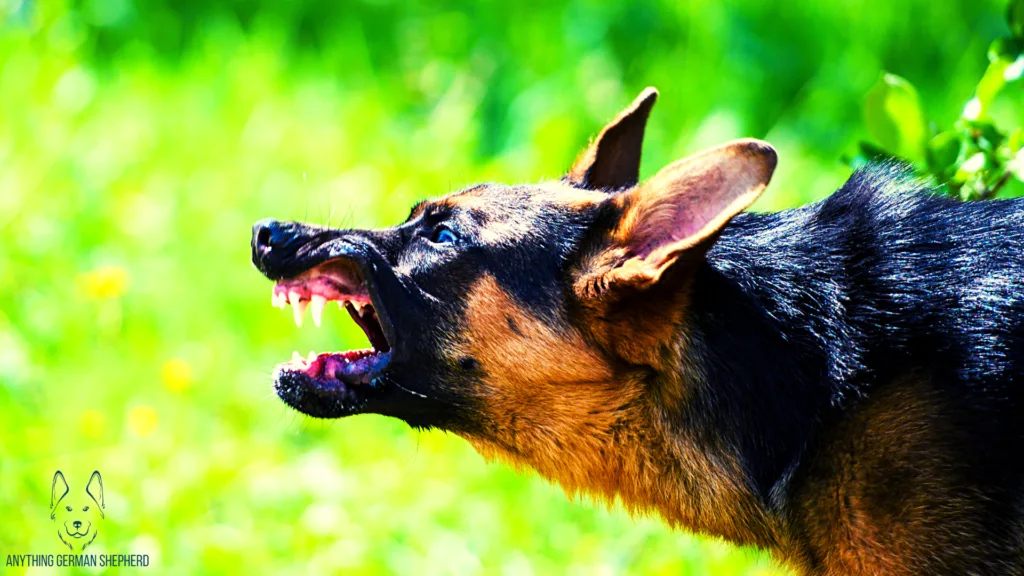
When your dog is being aggressive, there are usually other warning signs that will accompany a growl or come before a growl.
The things to look out for include the following:
- Hair standing on end
- Alert ears and eyes
- Wider eyes
- Stiffened body
- Salivating or flicking tongue
Knowing your dog’s body language for aggression and growling will help you understand how your dog is feeling and what they are thinking.
Your German Shepherd Isn’t Being Bad
German Shepherds usually don’t growl to be malicious or make anyone upset.
These dogs usually growl to grab someone’s attention or protect those they love.
Your dog isn’t trying to exhibit bad behavior and will usually growl from a good place, like wanting to have a good time with their family members and other pets in the home.
Is a Dog Growling Always Aggressive?
Not every growl means your dog is being aggressive.
Some dogs will growl when they play with others or when they spot a threat.
Why Do German Shepherds Growl?
The most common reasons German Shepherds growl is because they are playing or have something they want to bring to your attention.
These dogs might growl when they want you to investigate a danger or noise.
Should You Correct a Growling Dog?
You should correct a growling dog when they are growling at someone they shouldn’t or for a reason that doesn’t warrant such a strong response.
At What Age Does a German Shepherd Become Aggressive?
German Shepherds won’t become aggressive until they are between three and six months old. Until that time, all they like to do is play with siblings and other pets.
Why Is My German Shepherd Growling at Family Members?
If your German Shepherd is growling at family members, it may be because they have not been exposed to them at a young age or feel that those members are threatening.
























